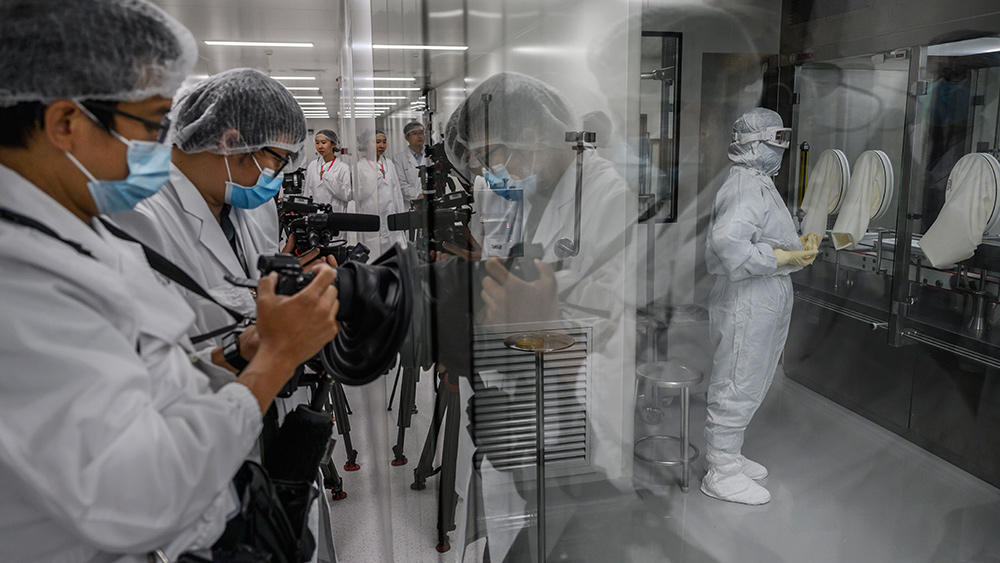
The World Health Organization took its sweet time to do so, but officials with the group have finally turned on China over the COVID-19 pandemic in a classic case of better late than never.
On Friday, the group made a sensational declaration, stating that China's failure to provide transparency regarding the origins of COVID-19 is "simply inexcusable," according to the UK's Daily Mail.
Samples taken from within Wuhan's "ground zero" have only just been publicly disclosed by Beijing-affiliated researchers, three years after the outbreak of the pandemic. In an unusual and severe criticism of Xi Jinping's communist government, a high-ranking WHO official expressed anger that this information was not shared promptly, stating that it "should have been shared immediately."
Dr. Maria Van Kerkhove, the WHO's technical lead on Covid, also acknowledged that she believes China may possess even more significant evidence that could ultimately reveal the origin of the pandemic. She suggested that this might include information on hazardous experiments conducted at the secretive facility that is central to the "lab leak" hypothesis, the outlet noted further.
While researchers investigating the origins of Covid-19 consider it entirely possible that the virus may have leaked from the Wuhan Institute of Virology, China has consistently denied such allegations, whether accidental or intentional.
Though many scientists support the theory that the virus originated in bats and then infected an intermediary species, possibly a pangolin, before spreading to humans, the natural origins theory remains a subject of debate.
"Yet that theory was seemingly dealt a huge blow [last week] by an eagerly-awaited paper authored by academics at China's Center for Disease Control and Prevention," the Daily Mail noted.
The report concluded that there was no conclusive evidence to support the theory that SARS-CoV-2 had originated from exotic animals being sold at the Huanan Seafood Market, where many early cases were traced to.
The team of researchers published their findings in the respected journal Nature, in which they analyzed hundreds of samples taken from around the Huanan Seafood Market and wild animals sold there shortly after the outbreak was detected. They warned that humans may have brought the virus to the market, which then acted as a super-spreader in December 2019, the report continued.
Virology experts have been requesting the release of this data for years, claiming it could provide valuable information to identify the origin of the pandemic. However, the World Health Organization only became aware of the existence of these samples three weeks ago.
The organization was informed of the samples' existence by experts who had accidentally discovered them on a repository site. The experts controversially concluded that raccoon dogs sold at the market may have been the source of the virus, said the UK outlet.
The research on the samples was leaked to the magazine The Atlantic and was touted as the "strongest evidence yet that an animal started the pandemic." However, it received widespread criticism, including from the Chinese team involved in the investigation.
Regarding the delay in sharing the samples, epidemiologist Van Kerkhove said: "The lack of data disclosure is simply inexcusable."
"The longer it takes to understand the origins of the pandemic, the harder it becomes to answer the question, and the more unsafe the world becomes," she added, according to the outlet. "Every new piece of data could potentially move the world closer to stopping another pandemic – perhaps a worse one – in the future.
"The failure to share information only fuels politicization of origins tracing and keeps all hypotheses viable," she continued.
In the journal Science, Van Kerkhove wrote, "China has advanced technical capabilities and I therefore believe that more data exist that have yet to be shared," which includes "on the wild and farmed animal trade; the testing of humans and animals in Wuhan and across China; the operations of labs in Wuhan working on coronaviruses; the earliest potential cases; and more."
"WHO continues to call on China and all countries to share any data on the origins of SARS-CoV-2, immediately," she wrote.
Sources include:
Please contact us for more information.













